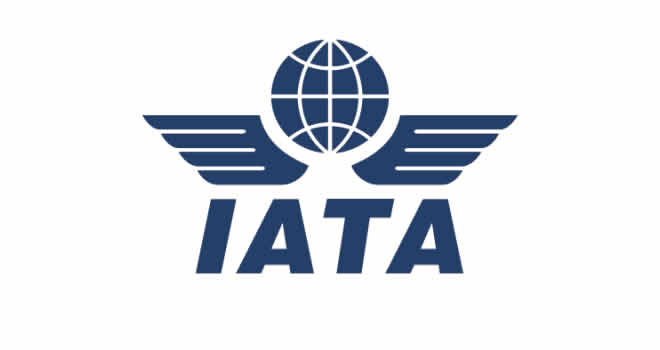Photo caption: IATA logo
The International Air Transport Association (IATA) reported that $1.3 billion in airline funds are blocked from repatriation by governments as of end of April 2025.
According to IATA, this is a significant amount, although it is an improvement of 25% compared with the $1.7 billion reported for October 2024.
The association stated that 10 countries account for 80% of the total blocked funds, amounting to $1.03 billion.
However, Nigeria is not on the list again having cleared over $700m airlines’ blocked funds as of last year, thereby exiting the debtors’ list.
At its peak in June 2023, Nigeria’s blocked funds amounted to $850 million, significantly affecting airline operations and finances in the country.
However, as of April 2024, 98% of these funds have been cleared as IATA confirmed, saying the remaining $19 million was due to the Central Bank’s ongoing verification of outstanding forward claims filed by the commercial banks.
In a report yesterday, the association representing 80 per cent of global airlines urged governments to remove all barriers preventing airlines from the timely repatriation of their revenues from ticket sales and other activities in accordance with international agreements and treaty obligations.
“Ensuring the timely repatriation of revenues is vital for airlines to cover dollar-denominated expenses and maintain their operations. Delays and denials violate bilateral agreements and increase exchange rate risks. Reliable access to revenues is critical for any business—particularly airlines which operate on very thin margins. Economies and jobs rely on international connectivity. Governments must realize that it is a challenge for airlines to maintain connectivity when revenue repatriation is denied or delayed,” said Willie Walsh, IATA’s Director General.
Pakistan and Bangladesh, previously in the top five blocked funds countries, have made notable progress in clearing their backlog to $83 million and $92 million, respectively (from $311 million and $196 million in October 2024, respectively).
Mozambique has climbed up to the top of blocked funds countries, withholding $205 million from airlines, compared with $127 million in October 2024. The Africa and Middle East (AME) region accounts for 85% of total blocked funds, at $1.1 billion as of end April 2025.
The most significant improvement was noted in Bolivia, fully clearing its backlog that stood at $42 million at end October 2024.
According to IATA, 12 of the 15 countries with blocked airline revenues are in Africa, totaling $846 million. Mozambique, Algeria, and Angola top the continent’s list of aviation-related debtors
IATA says delayed repatriation threatens airline operations and violates air agreements.
Mozambique leads the group with $205 million in blocked airline funds, followed by Algeria with $178 million and Angola with $84 million. Eritrea owes $76 million, while Zimbabwe holds back $68 million. Ethiopia accounts for $44 million. The remaining six African countries, Cameroon, Central African Republic, Chad, Republic of the Congo, Equatorial Guinea, and Gabon, collectively owe $191 million.
Outside Africa, Lebanon is holding back $142 million, Bangladesh $92 million, and Pakistan $83 million. While these figures remain substantial, IATA notes a broader decline in global blocked funds, down from $1.7 billion in October 2024. This drop is credited in part to the association’s lobbying efforts that pushed several governments to release funds owed to carriers.
Nigeria, which was the top debtor until late 2023 with nearly $800 million of the $1.68 billion blocked across Africa, reported in November 2024 that it had cleared about 98% of its dues. That followed firm action by major carriers such as Emirates and Etihad Airways, which suspended flights to Nigeria due to long payment delays.
Bangladesh and Pakistan, previously among the five biggest debtors alongside Nigeria, have also made significant progress. Their debts stood at $196 million and $311 million, respectively, in October 2024, but both countries have reduced these totals considerably.
IATA explains that the main reason behind the blocked funds is foreign exchange control measures in several countries. These restrictions make it difficult for airlines to repatriate earnings from ticket sales, causing serious financial strain and threatening business continuity.
Willie Walsh, Director General of IATA, warned that the impact goes beyond balance sheets. He emphasized that fast access to earnings is vital for airlines to pay their dollar-denominated expenses and stay operational. When countries delay or deny repatriation, they not only violate bilateral air service agreements but also increase foreign exchange risks.
Walsh added that airlines operate on extremely thin margins and cannot afford disruptions in access to their revenue. Reliable repatriation is essential for keeping international flights running and ensuring that air travel remains a viable option for passengers and cargo.



